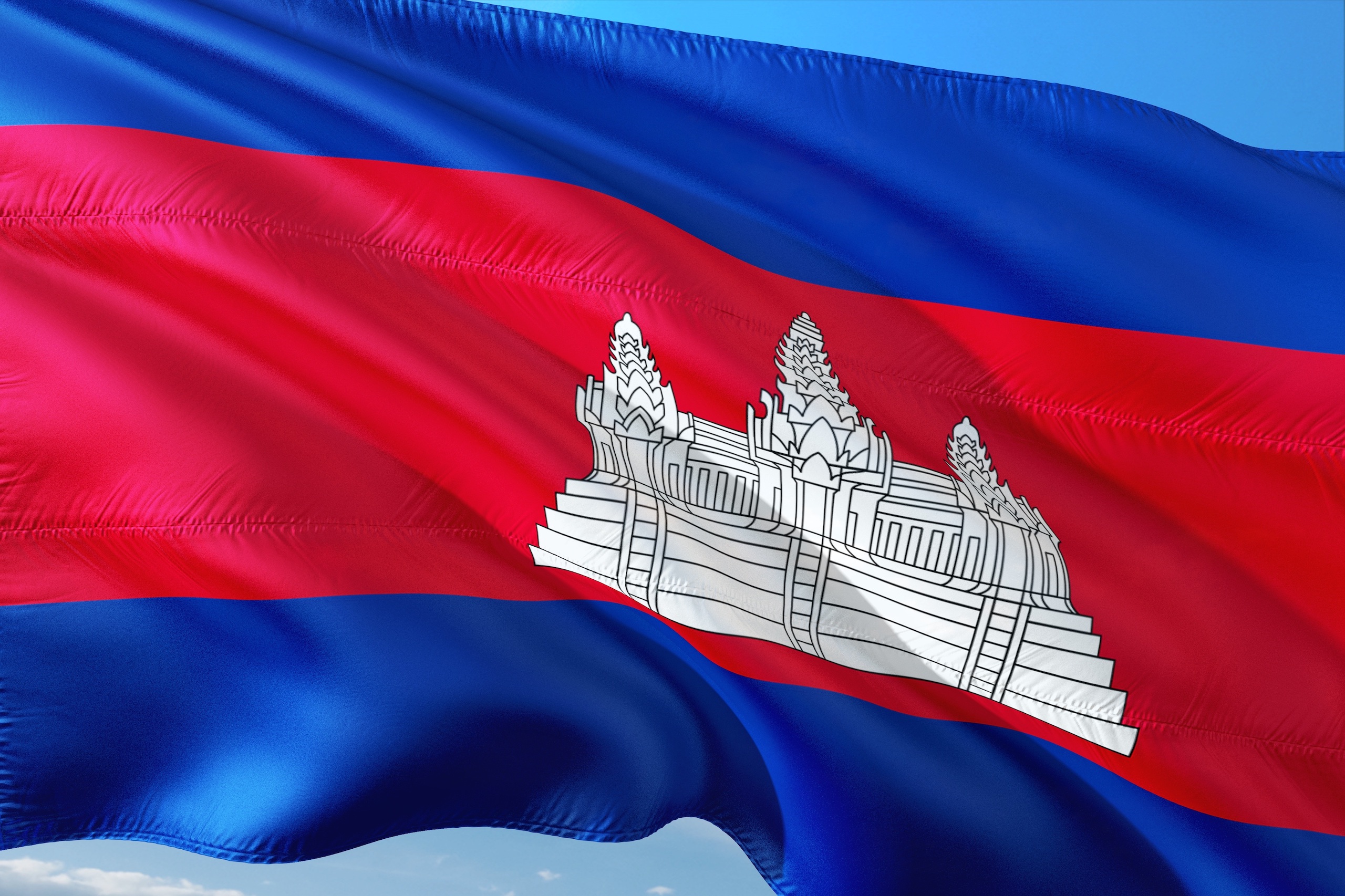A TrialWatch Fairness Report found that the weaponization of Cambodia’s incitement law led to the unjust conviction of activist Kong Raiya—part of a pattern of misuse of this law.
The report concluded that the court convicted Raiya despite lacking any evidence of wrongdoing and violated his right to freedom of expression under the International Covenant on Civil and Political Rights. The American Bar Association Center for Human Rights monitored the case as part of TrialWatch, a Clooney Foundation for Justice initiative.
Raiya’s conviction came after a one-day trial in May 2020. He was given a suspended two-year sentence for advertising t-shirts on Facebook showing a slain government critic. The TrialWatch Fairness Report, co-authored by Arthur Traldi, a former prosecutor at the International Criminal Tribunal for the former Yugoslavia, and staff at the American Bar Association Center for Human Rights gave the trial a grade of “D.”
The charges against Raiya are part of a pattern of cases brought under Article 495 of the Cambodian Criminal Code, which criminalizes “direct incitement to commit a felony or disrupt social order.” The United Nations Office of the High Commissioner for Human Rights noted that most of the 24 human rights defenders arrested in Cambodia between July 31 and September 11, 2020 “face charges of incitement.” Earlier this month, in a case monitored by TrialWatch, journalist Ros Sokhet was also convicted for incitement for Facebook posts critical of the Cambodian Prime Minister and sentenced to 18 months’ imprisonment.
In his assessment of the trial, Traldi concluded that: “This trial should never have happened. The prosecution never presented evidence that the defendant intended to incite anyone to engage in criminal activity nor showed how his advertisement, or the t-shirts, could have had such an effect. Based on the trial judgement and our monitor’s reports, Mr. Raiya appears to have been convicted simply for exercising his basic human right to free expression.” The report also finds that Article 495 is “not precisely drafted or narrowly tailored” and thus violates the International Covenant on Civil and Political Rights. CFJ calls on the Cambodian government to repeal or reform Article 495 of the Cambodian Criminal Code and to ensure that any future prosecutions for incitement respect the rights to freedom of expression and to a fair trial.
Background
Kong Raiya is an activist who was a member of the now-banned Cambodia National Rescue Party (CNRP). He was previously tried and convicted of ‘incitement’ in 2015, while a university student. The present case stems from Facebook posts advertising t-shirts showing the face of prominent government critic Kem Ley and featuring two quotes from him.
Kong Raiya’s pre-trial process was flawed. According to defense counsel, the courts ordered Mr. Raiya’s detention without consideration of his circumstances and failed on two different occasions to transport him to court in order to participate in detention hearings in person. The Fairness Report concludes that the conduct alleged “fails to meet the standards” prescribed by the International Covenant on Civil and Political Rights (ICCPR) and would “render Mr. Raiya’s detention arbitrary.” It continues, the fact “[t]hat Mr. Raiya was not physically brought before a court . . . constituted a violation of his . . . right to take proceedings before a court for release.”
According to Amnesty International, Kong Raiya spent nearly five months in a small, overcrowded cell in conditions that were cruel, inhuman and degrading. The situation led him go on a hunger strike.
The Fairness Report, which is based on monitoring of the merits hearing and the hearing at which the judgment was delivered, as well as on the judgment itself, finds that:
- “Mr. Raiya was convicted despite the prosecution’s failure to prove guilt beyond a reasonable doubt.” Indeed, the report notes that not only did the prosecution fail to explain whom the t-shirts were going to ‘incite,’ and how, but they never provided evidence that Kong Raiya possessed intent to incite unrest, as required by Cambodian law. Instead, the prosecution’s entire case rested on the fact that “the quotes could be seen by the public” if individuals wore them on t-shirts—a theory the court appears to have adopted in its conclusory judgment.
- Because it did not provide a “duly reasoned” judgment, the court violated Kong Raiya’s right to appeal. The report explains, “[i]t would be difficult for a defense lawyer reading the judgment to ascertain the reasoning behind the finding of guilt.”
The Fairness Report concludes that Kong Raiya’s prosecution violated his right to freedom of expression because, among other things, his prosecution was “neither necessary nor proportionate.”
For a full legal analysis of the trial and explanation of the grade that has been provided, please see the Fairness Report.
Link to CFJ statement here (ភាសាខ្មែរ).
